

News
The container cranes are the core equipment used for loading, unloading, and stacking containers in large ports, and are widely used in ports, railroad yards, logistics centers and other places. The types of container cranes are mainly categorized into the following, according to the different structures, uses, and moving methods:
Abbreviated as STS cranes, with towering gantry structures and a large span, can cover ultra-wide container ships. Equipped with a telescopic spreader, adapting to different sizes of containers (e.g., 20ft/40ft/45ft, etc.), it is mainly used for container loading and unloading operations from the ship to the shore at the quay front.

It grabs containers by the spreader in the container terminal yard to complete horizontal transportation and vertical stacking in the yard. Usually divided into the following two types:
Referred to as RTG Crane, using tires to move, high flexibility, suitable for small and medium-sized container yard horizontal handling and stacking, stacking height is usually 4-6 layers of containers, but needs to be reserved for the work aisle. Some models adopt a hybrid or electric drive system to reduce noise and emissions.

It runs along a fixed rail, with accurate positioning, a high degree of automation, a stacking height of more than 7 layers, and high utilization of space. RMG Crane is usually coupled with an intelligent AGV transfer cart to achieve efficient unmanned operation.
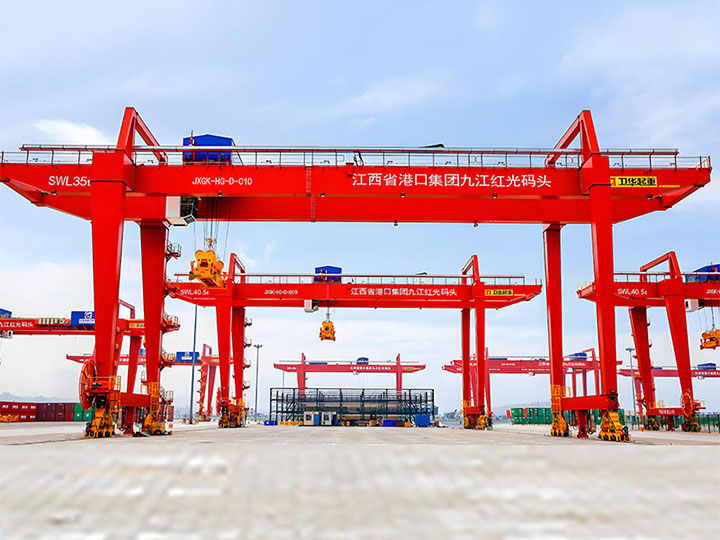
It is innovatively designed based on RTG, equipped with rubber tires for high mobility and efficient operation. It can travel independently and straddle over containers for transportation, loading and unloading, and stacking 1-2 layers of containers. Can handle different sizes of containers such as 20ft, 40ft, 45ft, etc. Widely used in small and medium-sized container ports, railroad yards, or temporary yards, as well as automated terminals for quick turnaround links.
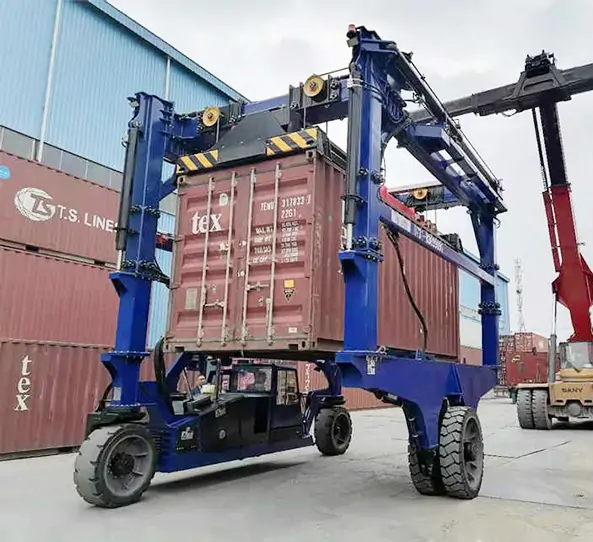
It is a multi-functional container handling and loading/unloading equipment with a hydraulic arm, telescopic spreader, high flexibility, and can stack 3-4 layers of containers. It is suitable for the yard, a railroad station, etc.
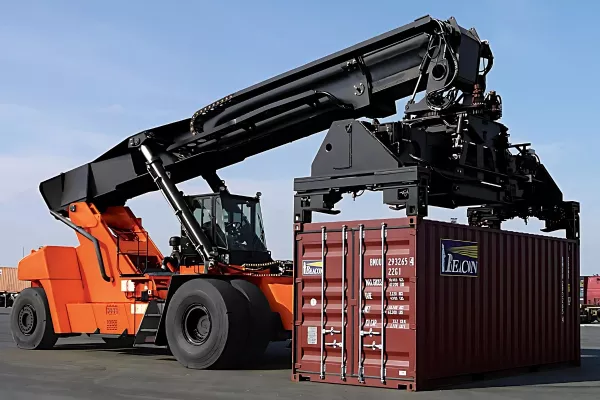
It runs along the rooftop rail, with a single or double beam structure, saving ground space. It is used in indoor container warehouses, specific logistics centers, and other automated warehousing systems.
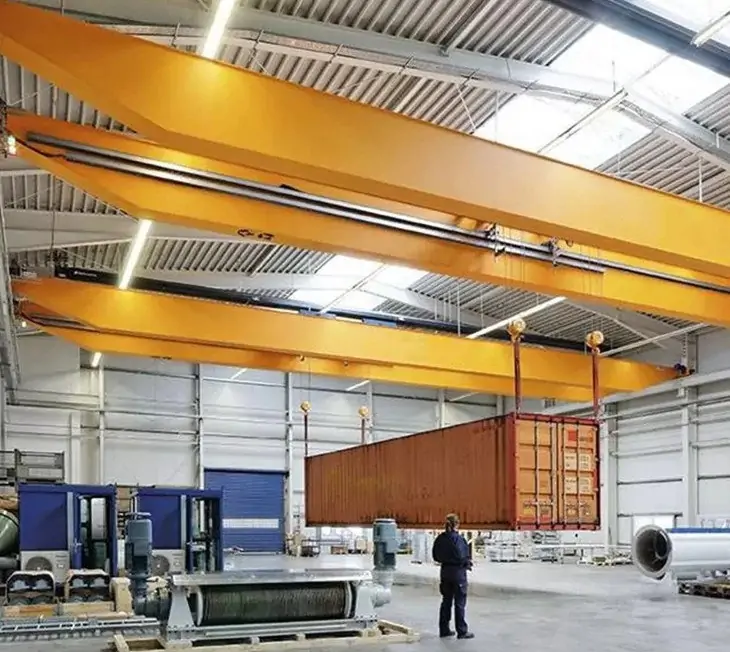
It is designed for railroad flatbed cars and trucks, for fast loading and unloading of containers, used for railroad and highway transportation, container transfer, commonly used in inland dry ports or railroad hubs.
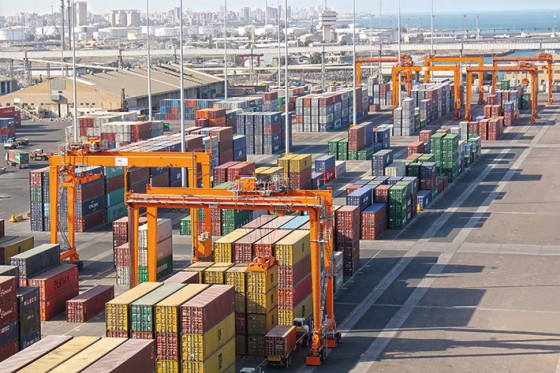
It is a heavy lifting equipment mounted on a barge or floating platform, which can move freely in the water. Equipped with heavy-duty booms, it can handle large containers, heavy equipment, and even modular building components, and some models have lifting capacities of hundreds of tons. Mainly used for water cargo handling, offshore engineering operations, and port emergency response, suitable for remote ports without fixed dock facilities, offshore barge operations, or temporary loading and unloading needs.
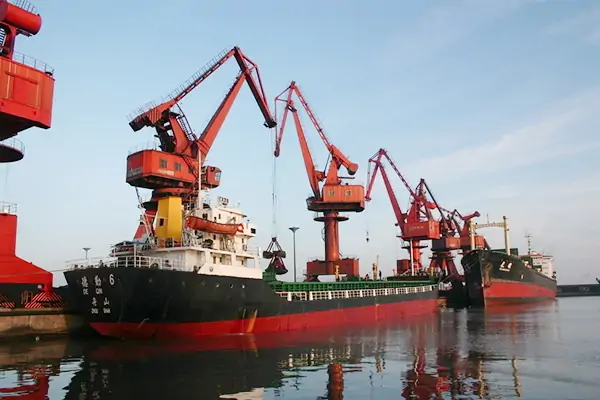
| Requirements | Recommended Models | Applications |
|---|---|---|
| High Throughput Ports | Dual Trolley Axle + Automated RMG | Flexible and automated, high initial investment, low long-term operation cost |
| Flexible Container Yards | RTG / Straddle Carrier | RTG for long-term stacking + Straddle Carrier is suitable for short-haul handling |
| Automation Needs | RMG / Straddle Carrier | Low-Cost Solutions |
| Intermodal Transportation | Electric RTG / Hybrid Frontal Crane | Can handle and stack containers (3-4 layers), suitable for mixed yards, railroad freight centers. |
| Can stack more than 7 layers, automated terminals, fixed high-density yards. | Rail Mounted Gantry Crane (Fixed Yard) | Can stack more than 7 layers, automated terminals, and fixed high-density yards. |
Through the above analysis of the types of container cranes application scenarios, companies can integrate the specific needs, ship type, automation needs, and budget to choose the most appropriate crane combination scheme. For further optimization of the selection program, please contact our professional team and provide your specific terminal layout and operational data.
Submit Request